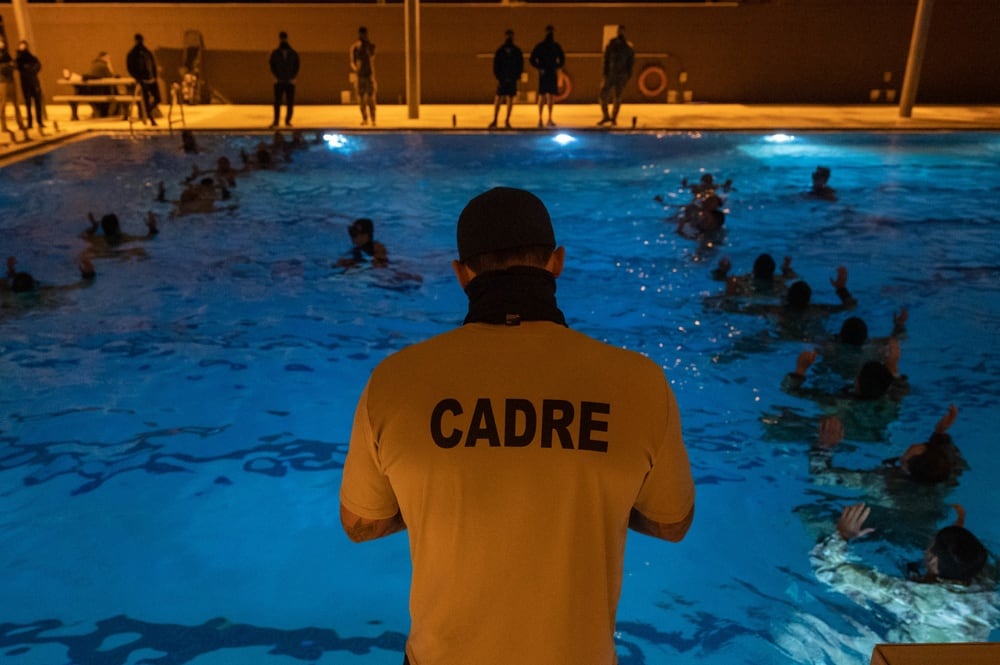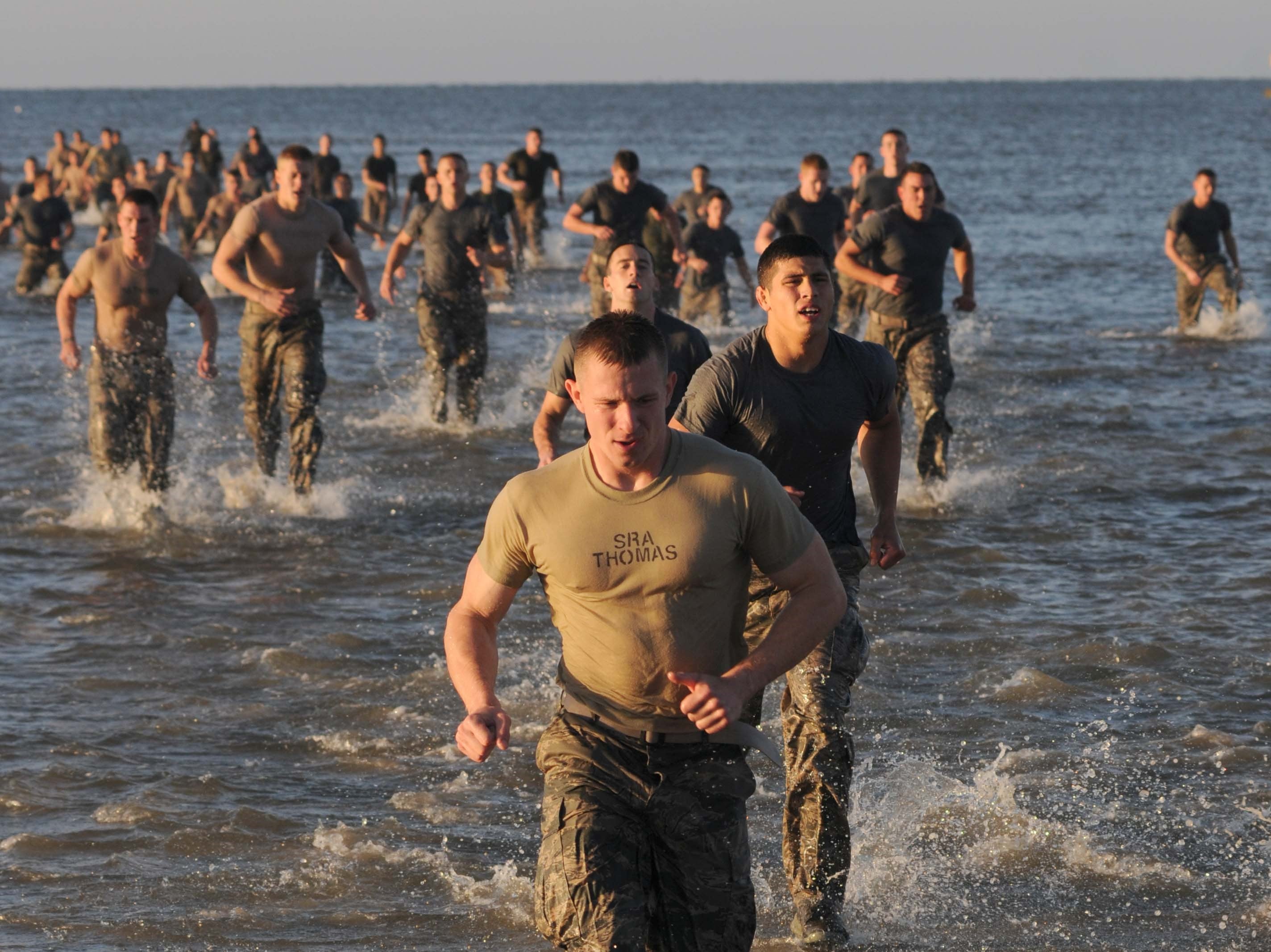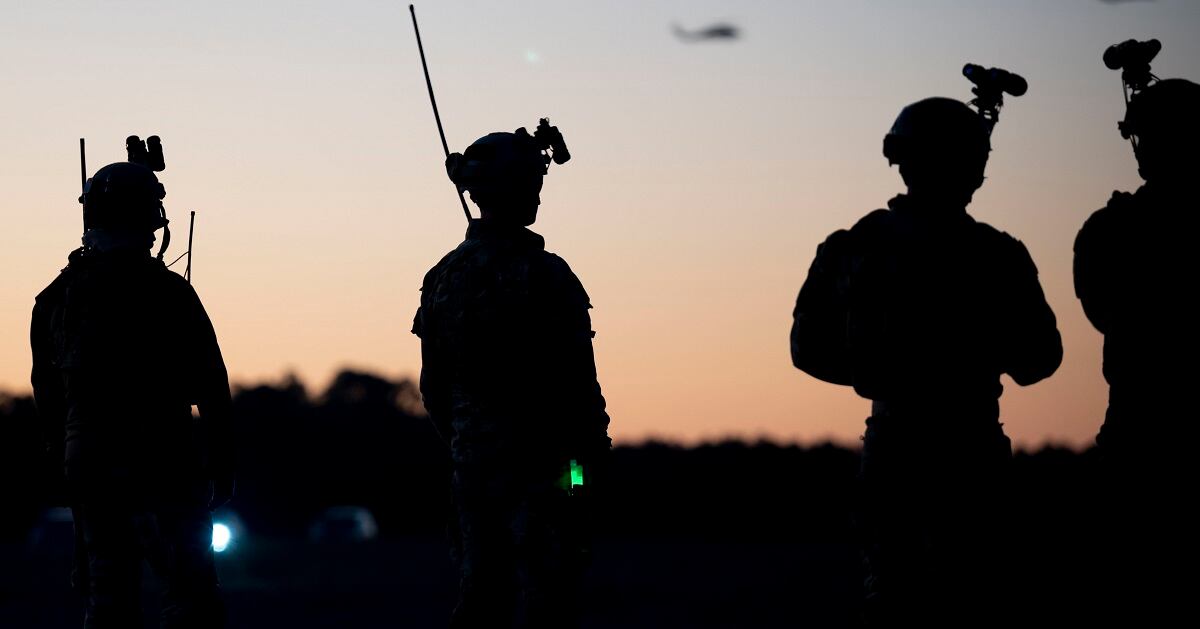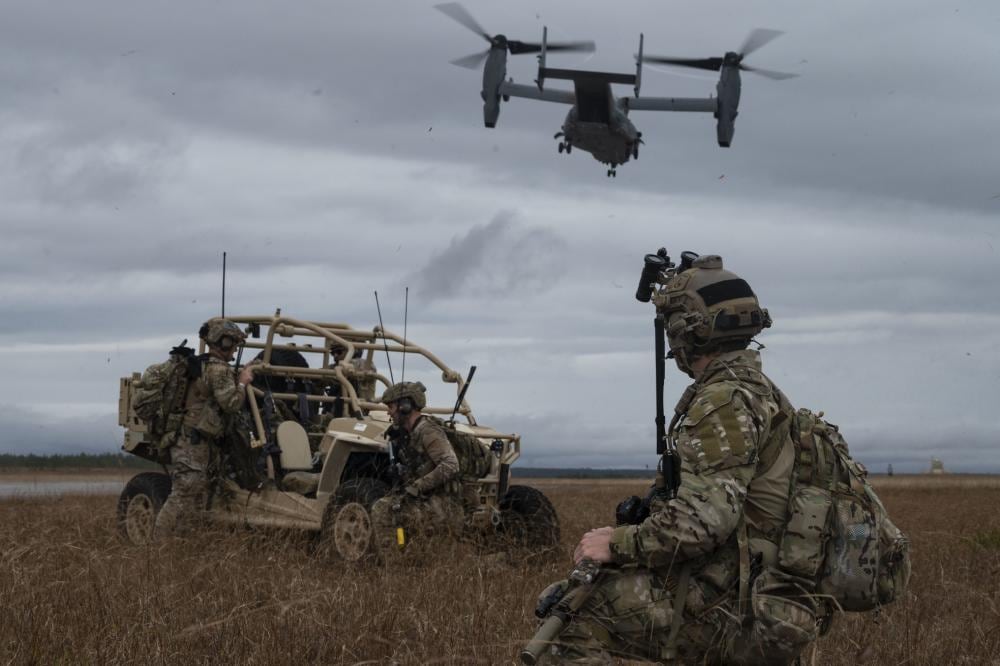Last month, as Air Force Special Operations Command scrambled to address anonymous allegations of foul play in special tactics training, the head of the 24th Special Operations Wing sought to reassure his subordinates that nothing was amiss.
The claims had gone viral on social media five days earlier, alleging that the service bent its qualification standards in favor of a trainee who may become its first female special tactics officer — including the unusual move of letting her restart the program after she quit at least once.
The anonymous letter alarmed the special ops community, spurred media coverage, triggered an Air Force inspector general investigation and caught at least one lawmaker’s attention. But several parts aren’t true, wing commander Col. Jason Daniels told airmen in a Jan. 10 memo that was obtained by Air Force Times.
The female officer did formally quit during a key training phase last spring, the commander confirmed, but he said a second alleged departure wasn’t so clear-cut and a third was due to an injury she sustained. Also, what the anonymous letter saw as special treatment — including a chance to work for AFSOC leadership after she quit — Daniels viewed as a rare opportunity for the command to solicit feedback from a uniquely talented female candidate.
RELATED

“The anonymous email includes inaccuracies throughout and sows a slanted narrative that has degraded trust in the training architecture as well as damaged the candidate’s reputation,” Daniels wrote. “While I hesitate to give such an email this much light, I also understand the community is rightly concerned and would like to be reassured that standards are maintained.”
He wrote to airmen a few days after AFSOC declined to publicly address any of the points made in the anonymous letter, citing privacy concerns. The Air Force also said Feb. 4 it would not answer questions about Daniels’s memo because of the ongoing investigation.
Air Force Times is withholding the female airman’s name for privacy reasons.
The unnamed author claimed the woman has tried to quit training three times — twice in water training sessions and once during a solo land navigation course.
In 2018, she unsuccessfully tried to finish Phase II of special tactics officer training — a weeklong process to pick who will advance to years of formal special tactics courses — and cleared the hurdle on her second try in 2019.
RELATED

Daniels wrote that during the Phase II class in 2018, the candidate struggled in a rigorous session and got out of the pool. That can be classified as “quitting by action” or “failure to train,” two common incidents in special warfare training that also happen with male trainees, he said.
AFSOC has codified procedures for deciding whether a trainee is struggling or leaving altogether, Daniels wrote. The Air Force declined to provide a copy of that policy.
“She indicated she did not intend to quit,” Daniels said. “She got back in the pool and finished the session along with the remainder of the week.”
A special tactics instructor, who requested anonymity to speak candidly about the incident, told Air Force Times that the woman felt she was holding her team back.
“It was a huge deal,” he recalled. “All of the [instructors] got called into a room to discuss what happened.”
She was allowed to continue training with the rest of the Phase II candidates after talking with a senior instructor, the airman said. Daniels indicated the female airman spoke to the lead instructor — someone between the ranks of major and colonel — and the senior enlisted leader.
But Daniels pushed back on allegations that instructors unanimously voted against her being selected during her second attempt at Phase II in 2019.
Most of the trainers recommended that she continue, and she earned positive reviews from her peers, Daniels said. The wing commander argued that the woman is a good communicator and critical thinker, and would be a successful special tactics officer.

The anonymous author also claimed the female candidate quit pool training a second time — at a course in Texas to prepare airmen for combat dive training. Then, the author alleged, she was allowed to attend a “more relaxed” version at Hurlburt Field, Florida, instead.
Daniels responded that the woman had sought medical attention and returned to Florida to treat an unnamed injury. There, she joined the final pre-dive course offered at the Special Tactics Training Squadron.
The Air Force did not answer whether the class was intended for special tactics officers, and if so, whether other combat control or pararescue trainees also attended. The service has historically provided tactical air control party specialists pre-dive training through similar programs at the Florida schoolhouse.
“Upon completing pre-dive, the candidate completed the Special Forces Combat Diver Qualification Course at Key West, FL, where she became the first woman to graduate that course,” Daniels said in his letter.
Daniels acknowledged that the female candidate formally quit training at Combat Control School in North Carolina in April 2021, but wasn’t ejected from the program — a claim corroborated by training forms obtained by Air Force Times.
RELATED

Daniels’s memo did not specifically address land navigation, the portion of Combat Control School during which the woman dropped out. But her decision to quit prompted wing leaders to ask her for a report on policies, standards or conduct she felt held trainees back — shedding light on her struggle in the woods.
Her April 2021 after-action report, obtained by Air Force Times, recommended giving trainees more time to practice planning routes before having to prove themselves as navigators in the field.
The female airman ran into multiple people who were lost, she said. Trainees don’t fully understand how to plot a path without “hand railing” — or relying on roads to get around.
“There were several times that myself and others got completely thrown off by roads that were not on the map,” she said. “Operationally we may not have access to completely updated information, but while students are learning a skill for the first time, it is important to solidify the fundamental skills before asking them to perform like seasoned navigators.”
Though the Air Force suggested that other airmen who dropped out at various points in Combat Control School should be retrained into other jobs, citing Air Force policy, the woman’s paperwork advised supervisors to readmit her and “proceed [in accordance with Special Warfare Training Wing and 24th Special Operations Wing] determination,” Air Force Times previously reported.
The woman’s after-action report also stated that all of her face-to-face interactions with instructors and staff were professional. However, rumors spread before she arrived at Combat Control School in North Carolina.
Multiple students told her instructors were “preparing their warships” and did not want her to graduate, she wrote in the report. One told her that a trainer openly discussed his disdain of the soon-to-arrive female candidate in front of an entire team of students.
The female candidate’s feedback ultimately led the Air Force to review its training pipeline standards and professionalism, Daniels wrote. The service declined to discuss the results of that inquiry.
“Some behavior of individuals in the special warfare training enterprise does not align with professional standards, [and] while a good-faith effort was made to integrate female trainees, much more work remains before credibility can be restored,” Daniels wrote. “The [special warfare] enterprise should be devoid of institutional, occupational or individual barriers that cause anyone to feel like they do not belong.”

The female candidate’s feedback and her performance in training led the 24th Special Operations Wing to give her another chance to finish the program, he added.
“For years, the 24 SOW standard operating procedure for [special tactics officer] selection and re-entry into the pipeline has been to wait for one year or longer before returning for another attempt,” Daniels continued. The Special Warfare Training Wing “is currently finalizing a written policy to codify the waiting period.”
The Air Force did not provide Air Force Times with a copy of that policy, or answer questions about whether any other male officer was granted that opportunity after quitting.
Critics also alleged the woman was given other forms of preferential treatment not afforded to other trainees who quit, such as working in a job that directly reports to AFSOC boss Lt. Gen. Jim Slife. They worry she is too inexperienced to have a hand in shaping future policy for commandos at the Cochran Group, an in-house think tank of sorts for special operations.
“Based on the candidate’s performance in her core [Air Force specialty] and the in-depth knowledge of the candidate’s attributes, the candidate was selected to work in the AFSOC Cochran Group while she considered reentry into the pipeline and awaited a one-year period,” Daniels said.
The trainee’s record and performance in her previous career field, plus her understanding of the traits that officers develop throughout special tactics training, also “resulted in allowing the officer an opportunity to assess at a special mission unit to work within her previous career specialty,” he wrote.
The anonymous author had claimed that the woman was given a prestigious special mission unit job without going through the usual competitive selection process.
Daniels likewise brushed off the suggestion that Maj. Spencer Reed, formerly the head of the 352nd Special Warfare Training Squadron in North Carolina, said the service would get its first female special tactics officer, even if she falls short of the field’s high standards.
“Neither the current commander, nor any other commander of a [special warfare training squadron or special tactics] unit, would make this statement,” he wrote. “Wing leaders have made statements that it is imminent that a female candidate will make it through the pipeline after they meet the same graduation standards as their male counterparts.”
He chided the community for airing their grievances on social media, and asked that any further complaints come through the wing’s front office instead.
“Few people would appreciate a similarly detailed account of their own struggles and experiences laid bare for their peers and future teammates to dissect,” Daniels said.
Rachel Cohen is the editor of Air Force Times. She joined the publication as its senior reporter in March 2021. Her work has appeared in the Washington Post, the Frederick News-Post (Md.), Air and Space Forces Magazine, Inside Defense, Inside Health Policy and elsewhere.
Kyle Rempfer was an editor and reporter who has covered combat operations, criminal cases, foreign military assistance and training accidents. Before entering journalism, Kyle served in U.S. Air Force Special Tactics and deployed in 2014 to Paktika Province, Afghanistan, and Baghdad, Iraq.




